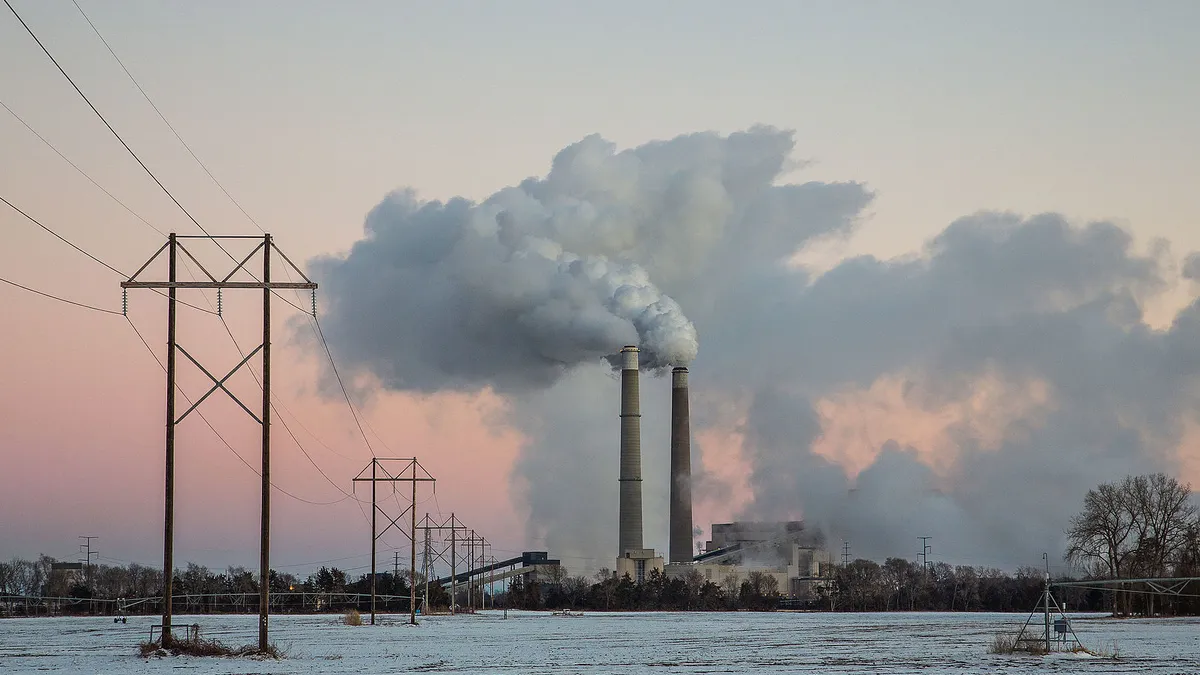Dive Brief:
- The U.S. Department of Energy has selected nine projects for funding and support as part of the Trump Administration's work to rebuild the ailing industry and find new and "cleaner" ways to utilize the fuel.
- DOE last August announced $50 million in possible funding for pilot projects to develop "transformational coal technologies."
- DOE said the projects selected for Phase I of the funding opportunity announcement (FOA) represent a range of technologies that demonstrated "technical success at the small-scale pilot stage," and will now focus on project schedules, costs and funding, an environmental assessment.
Dive Insight:
DOE has given some details on the selected pilots, which will ultimately be winnowed down to two projects to receive support for construction and operation of the large-scale pilot facilities. They include methods to capture carbon dioxide, burn coal cleaner or gasify it into a cleaner fuel.
President Trump is a strong supporter of the coal industry and "clean coal" in particular, though the concept has demonstrated only limited success at large scale — and the price tags associated with those projects have been very high. Southern Co.'s failed Kemper County coal-gasification project is the most well-known, and wound up being a $7.5 billion combined cycle natural gas plant.
But the FOA issued by the federal government focuses on much, much smaller projects in an attempt to nurture a new technology that could ultimately shift the tides of the coal industry. Gasification is in the mix, albeit in a small way.
The University of Alaska Fairbanks is working to make coal "relevant for small scale applications," DOE said. The university will receive almost $16,000 — the smallest grant, by far — to develop modular gasification technologies. The project is described as a modular air-blown fixed-bed gasifier with gas cleanup "to provide clean syngas to an existing diesel engine generator."
The largest project, run by the Southwest Research Institute in San Antonio, Texas, will receive just shy of $1 million from DOE. The institute is working on a large-scale coal-combustion pilot plant that "will demonstrate flameless pressurized oxy-combustion technology, which has the potential to reduce the levelized cost of electricity while capturing CO2 that is ready for compression to pipe-line pressure."
Projects selected to go on to Phase II will complete a front-end engineering design study as well as navigating the National Environmental Policy Act process. Phase III includes construction and operation.
There are other projects going on outside DOE's funding, of course. Clean Coal Technologies Inc. expects to begin operating a test plant in northeast Wyoming by summer 2018. The company says it has developed a process that converts "raw" coal into a cleaner burning fuel.















